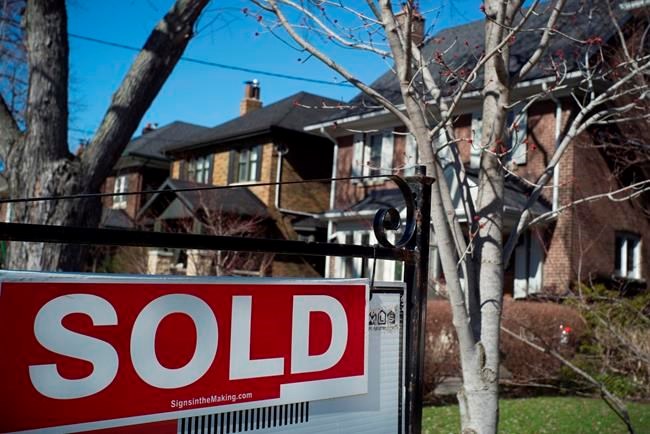Thomas Rosenthal has been checking online property listings every day while under lockdown.
The 30-year old University of Toronto master's student, who works part-time as a data engineer, currently rents a one-bedroom in midtown Toronto with his partner for $1,900 a month. They're generally happy there, and their landlord is friendly and accommodating. But a place of their own would offer them the control and independence they long for. And, after almost a decade of saving, they've found themselves well-poised to make a down payment.
"We have fairly low expenses, all things considered," Rosenthal says. "We've been able to save quite a lot."
While Rosenthal and his partner are hoping to land a condo for around $500,000, he often sets his search parameters a bit higher, just to see what's out there. Recently, he's noticed unusually large numbers of properties posted around the $700,000 mark — units that would've been listed for higher just a few months ago.
It's the sign of a broader shift in the market. As the country buckles in for its next great recession, housing sales have plummeted to their lowest levels since 1984, and prices in some areas have become more favourable for buyers.
This makes it an opportune time for first-timers like Rosenthal, although he says the move still feels like a dangerous one. While the pair are relatively job secure, making a significant financial investment in the middle of a pandemic still feels risky.
He's also wary of making any commitments without seeing properties in person. Lockdown orders have moved the majority of tours online, which clouds buyers' natural judgment on the condition of a property.
"In a virtual walk-through your opinion is based on the quality of that camera person," Rosenthal says. "A professionally done one makes it look impeccable. But you can't see everything. You know, you don't get to open up the cabinets."
It's a valid concern, according to James Mabey, realtor with Century 21 Masters in St. Albert, Alberta. He suggests his clients stay away from virtual tours when making big decisions. Instead, he recommends online open houses, where prospective buyers can Zoom or FaceTime with realtors in real time. "You can interact with the agent while they're at the property, so you can say 'hey, let's go downstairs, can you show me that room again?'" Mabey says.
He also suggests looking for gaps in photo collections when browsing listings. If you have a floor plan, it's worth making sure photos of every room in the property are shown online. Missing rooms are an indication that the seller is trying to cover up problem areas while in-person access remains limited.
When in doubt, don't be afraid to enlist a trained eye to help spot discrepancies, Mabey says. Buyer's agents can help first-timers weed through the noise and learn to listen to their gut on closing a deal. The latter is something many struggle with — even Rosenthal, who admits he catches himself thinking about how to time his purchase with the market, despite knowing that waiting for a so-called golden opportunity to buy is typically ill-advised.
"People say if it's going to be your primary residence, it's always the right time to buy if you have the money," Rosenthal says.
Timing a purchase around market price is not always the savviest move, says Mabey. In fact, "the good deal is actually the interest rates you can get on a mortgage right now," he says. "If a property comes down a couple thousand dollars in your negotiation, but if interest rates in the meantime start to go the other direction, then, in actual fact you have a paid way more for that house over the time you're paying that mortgage."
So, if you're ready to buy, Mabey advises not to wait too long, or you could miss out on a great deal. "I don't generally find that any buyers who do pull the trigger are unhappy with their decision, years later," Mabey adds.
This report by The Canadian Press was first published May 19, 2020.
Audrey Carleton, The Canadian Press



